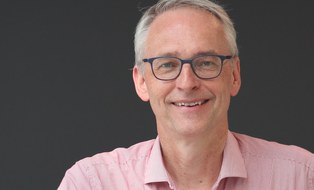BAYFLEX – Bayesian Inference using Flexible Electronics for Electrophysiological Applications
Duration: 01.04.2023 - 30.09.20276
Funding amount: €471.455,00
Funded by: EU
Summary:
The long-term vision in BAYFLEX is to create a radically new technology that uses low-cost, green organic electronics for probabilistic computing to allow continuous and private monitoring of bio-signals on flexible substrates.
The vision of flexible green AIsensors with on-chip classification extends well beyond biomedical devices and the democratization of health care, with the possibility to transform sensor data at the edge of large networks. To achieve our goal, BAYFLEX will demonstrate a patch using active physiological sensors based on organic materials that interface with the soft human body and that also includes classification circuits (~ 100 transistors) fabricated using Thin Organic Large Area Electronics (TOLAE) processes.
These circuits use spiking neurons realized in Organic Thin Film Transistors (OTFTs) to transform the non-stationary electrical signals from the sensors into stochastic bit streams. Bayesian inference
is then used to classify the data using circuits of cascaded Muller C-elements. Taking advantage of the unique properties of organic electrochemical transistors (OECTs), low transistor count dynamic Muller C-elements are targeted. The patch will be tested on a simple task using healthy humans.
The project brings together an interdisciplinary consortium with expertise in modeling emerging devices, biologically inspired circuit design, experts in machine learning involving electrophysiological data (including an SME), and teams with expertise in OTFT and OECT fabrication. BAYFLEX targets dissemination to a variety of publics including scientists via publications in (open access) high-impact journals and conferences; industrials and end-users through an industrial advisory board, a workshop, and demonstrations at targeted conferences; the general public with the creation of a transferable workshop for non-scientific communities and training the next generation of experts through specialized schools and workshops.
Contact:
 © Kai Schmidt /IAP
© Kai Schmidt /IAP
Prof. Dr. Karl Leo
Chair of Optoelectronics
Send encrypted email via the SecureMail portal (for TUD external users only).

